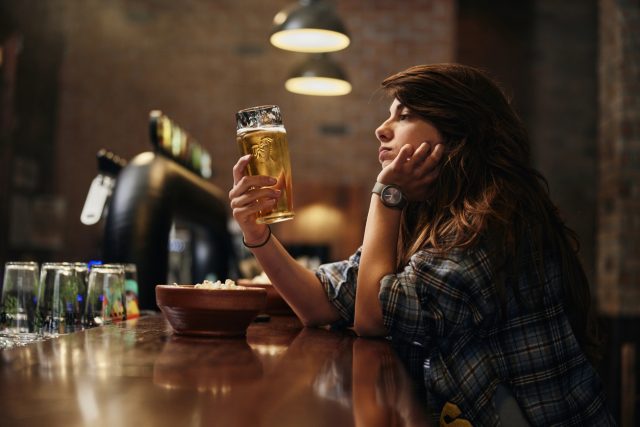This website uses cookies so that we can provide you with the best user experience possible. Cookie information is stored in your browser and performs functions such as recognising you when you return to our website and helping our team to understand which sections of the website you find most interesting and useful.
Beer advertising still unappealing to women
Women are “impervious to current beer advertising campaigns” and “reject” beer as “not for them”, according to report findings.

In the recent ‘Gender Pint Gap: Revisited’ report by women’s beer collective Dea Latis, the group’s co-founder, report editor and beer sommelier Annabel Smith identified how British women continue to be overlooked as a primary audience in beer advertising.
While assessing the YouGov data, Smith said it was evident that, although beer advertising had reverted from sexism and overt masculinity, it still “doesn’t resonate” with women who remain ambivalent and have no recall of current beer brand adverts.
Little evidence
Speaking exclusively to the drinks business, Smith said: “We focused a lot on the way beer is marketed and advertised in both the 2018 report and the latest report. Both men and women strongly agreed or tended to agree that beer advertising is typically targeted towards men. However, does this belief match the reality? We looked at lots of current beer advertising campaigns, studied the imagery and language used and could find very little evidence of beer currently being advertised in an overtly masculine way.
“The majority of advertising focused on things such as the beers legacy, beer being a social lubricant in a mixed group of people, festivals, food occasions, and the experience economy (associations with feeling good, being in a good place, experience over product).”
To add context to why the advertising could be considered largely irrelevant to half of the population, Smith explained to db it was about appeal: “A piece of research we included in the report came from an American academic called Helana Darwin.
“In her full thesis she suggested that brand owners are reluctant to position beer as a gender-neutral product, fearing it could threaten, demasculinise and alienate their core consumers: men. So it could be argued that whilst we’ve eradicated obvious and blatant sexism in beer advertising, advertisements aren’t especially appealing to women either, and this is a deliberate strategy.”
According to Smith, the report findings highlighted “some assumption and theories about why women thought beer was typically advertised towards men: Streaming services and social media platforms permit us to skip advertorial content therefore have women actually seen, or been exposed to current beer advertising campaigns? Could their opinion be based on historical adverts which were traditionally very male/sport/pub orientated? If this is the case, the response is skewed and there’s a lot of history to unravel.”
Cynical
Plus, Smith also asked whether women were becoming increasingly cynical of advertising campaigns, which position beer as diverse, inclusive and gender-neutral when the real life experience was the opposite.
In her query, Smith identified how “authenticity is critical, and if this doesn’t come across, or a product is trying too hard to appear diverse it will be regarded with cynicism”.
She revealed: “In the course of doing the research, I asked lots of women to think of a beer brand that they had seen recently advertised either in mainstream media or below the line advertising. Women really struggled to answer this question and often defaulted to obsolete advertising campaigns from the 90’s and noughties (eg Peter Kay & John Smiths, Melanie Sykes & Boddingtons, the Carling ‘I bet he drinks Carling Black Label’, Paul Hogan and Fosters).
“They were almost impervious to current beer advertising campaigns and had very little recall. It suggests the advertising doesn’t resonate with them, or they reject the product outright as ‘not for them’.”

